PHUKET: A group from Okinawa in Japan came to Phuket on Monday to learn about tsunami recovery. It seemed an odd thing for a Japanese destination to be asking.
This was an unusual meeting because Okinawa was not damaged by Japan's tsunami of 2011. Yet as a one-time tourist destination, it has been suffering unfairly from the after-effects.
Phuket became well-known following the December 26, 2004 tsunami, and recovered extremely quickly.
Why? Because the damage done to Phuket was confined to the coastal strip, and because Phuket, to a certain extent, benefitted from the enormous outpouring by people who wanted to help.
People's hearts were touched by the tsunami suffering. And Phuket, although it wasn't as badly affected as many other places, was the first place to be reported as struck by the tsunami.
At that time, the Japanese word ''tsunami'' wasn't as well known as it is now. People all over the world associated this terrible new word with Phuket in 2004.
It turned out that other places - Aceh in Indonesia, India, Sri Lanka - suffered far worse than Phuket. Even closer to Phuket, where about 300 people were killed, 800 were killed on another much smaller island, Phi Phi.
And north of Phuket, around Khao Lak, in Phang Nga, about 3500 people were killed - 800 in just one fishing village, Nam Khem.
So Phuket, with 10 times the population of Khao Lak, suffered several hundred deaths. Khao Lak, with one tenth the population, suffered ten times more casualties.
Yet Phuket, as the biggest name and the regional hub, became the place where television cameras took their footage.
And for that reason alone, Phuket became associated most with the 2004 tsunami . . .so, through no fault of its own, despite its relatively low number of casualties, Phuket became the place that attracted the most sympathy.
Look at the figures: 300 dead on Phuket. 3500 dead in and around Khao Lak. 160,000 dead in Aceh.
The point that wasn't made at Monday's meeting was that Phuket, largely because of the coverage by the international media, became the destination in Thailand that everybody associated with the 2004 tsunami.
And because Phuket wrongly received so much of the sympathy of the rest of the world, it recovered in remarkable time.
Okinawa, like Phuket, did not suffer greatly from the tsunami in Japan. Yet it has suffered because of the tsunami.
And that's all because, in both cases, the media in general did not get its facts, or its sense of proportion, quite right.
Phuket was also an international destination, so when the word went out that Phuket needed tourists to aid its recovery, people took notice and came to Phuket.
It was years later before recovery came for Phi Phi, Nam Khem, Khao Lak and the parts of Thailand that really suffered.
But compared to Aceh, the deaths on Phuket were few. It just so happened that of the 5400 deaths in Thailand, about half were tourists from 40 countries around the world.
And that is the difference between Phuket and Okinawa. Phuket got sympathy it did not really deserve, and recovered.
Okinawa did not really suffer, and yet although it did not really suffer, its tourism industry is suffering still. That's the unfairness of life.
Phuketwan was the only Phuket news organisation with a reporter at this week's meeting between the Okinawa deputation and Phuket administrators.

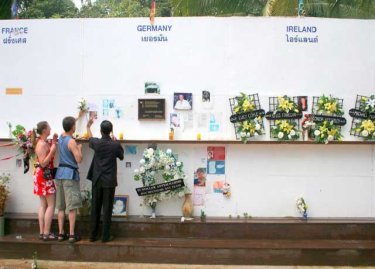
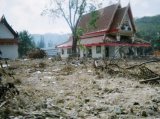


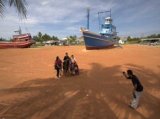
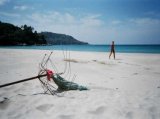

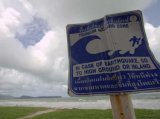
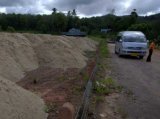

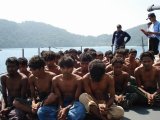

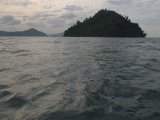



The figures for fatalities in Khao Lak were much higher with nearer 6,000 than 3,500. Phuket, partly because of the publicity and its profile, also received a disproportionate amount of financial aid both governmental and voluntary donations to help with its recovery than Khao Lak and to a lesser extent Phi Phi. Visitors, like us, arriving at Phuket airport in the first High Season after the Tsunami and booking a taxi to Khao Lak, were met with "What are you going there for? There are still dead bodies everywhere. Stay on Phuket instead." I doubt whether the reality of a non-Phuket perspective and its unfairness to its near neighbours and fellow countrymen will have been conveyed to the Okinawa delegation.
Posted by Alan on October 4, 2012 16:34
Editor Comment:
The total number of deaths in Thailand from the 2004 tsunami was 5400. If you've heard otherwise, you've been misinformed.